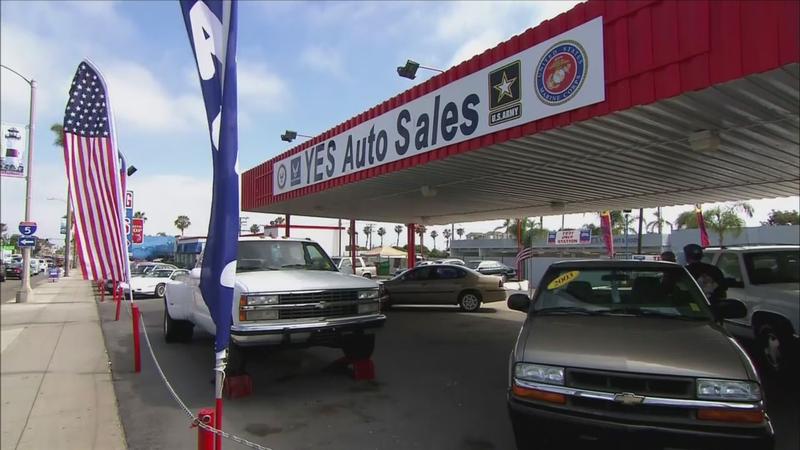Consumer Alert: You may be paying too much for your auto loan
[anvplayer video=”5066422″ station=”998131″]
ROCHESTER, N.Y. (WHEC) — If you need a new car, we have good news and bad news.
For months I’ve been giving potential car buyers. Car prices have been skyrocketing, but there may be some light at the end of that proverbial tunnel. Some analysts think prices may have reached a plateau. That’s because used car prices that have been on a maniacally meteoric rise for months actually decreased slightly in September. And historically, when the weather cools, car prices tend to cool as well. That’s the good news.
Here’s the bad news for buyers. Prices are still astronomically high. For example, used car prices are up more than 24% over this time last year. So while prices may come down a bit, don’t expect them to fall to pre-pandemic levels.
If you need a new car, now is the time to plan. There are six days of the year that are the absolute best time to hit the new car lot — Dec. 26 through New Year’s Eve. But before you do, I have to share the results of an exhaustive investigation done by Consumer Reports.
CR studied 858,000 car loans, and the non-profit found that sometimes, the terms of your loan have little to do with your credit score. They illustrated the point by pointing out to California borrowers. They were almost identical. Both bought a Chevrolet Trax. Both financed about $18,000, had an income between $60,000 and $66,000 and had a prime credit score — that’s between 660 and 719. One buyer was given a loan with an APR of 4.9%. That means over the life of the loan he or she will pay $20,448.

[News10NBC]
But the other car buyer was given a loan with a whopping APR of 14.1%. That’s like buying a car on a credit card. And over the life of the loan, he or she is paying $27,540 dollars. That’s about $7,100 more than the first buyer.
Ian Ayres, a Yale University economist and lawyer who studies these issues says this is all too common. He said he has seen even consumers with scores 720 or higher pushed into sub-prime loans with high APRs.
So what gives?
Experts interviewed for this investigation say often the rate you get isn’t based on risk; instead, it may be based on what the lender or dealer believes he or she can get away with. A quote from R.J. Cross, a tax and budget advocate with the Public Interest Research Group really struck me.
He said, “The financing you get has a lot more to do with how prepared for battle you are when you walk onto the showroom floor than your financial history.”
So what’s the takeaway for consumers? Knowledge is power. According to Consumer Reports, here’s what you should know before you go, your credit score, your budget and stick to it. And perhaps most importantly, the rate you can get from another lender. If you get pre-approval for a car loan from your bank or credit union before you go, you have a good starting point for negotiations.
Want more great advice from Consumer Reports? Click here.